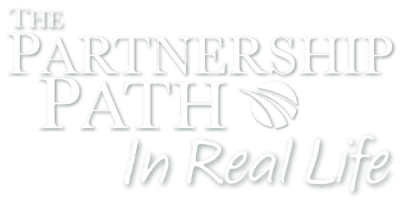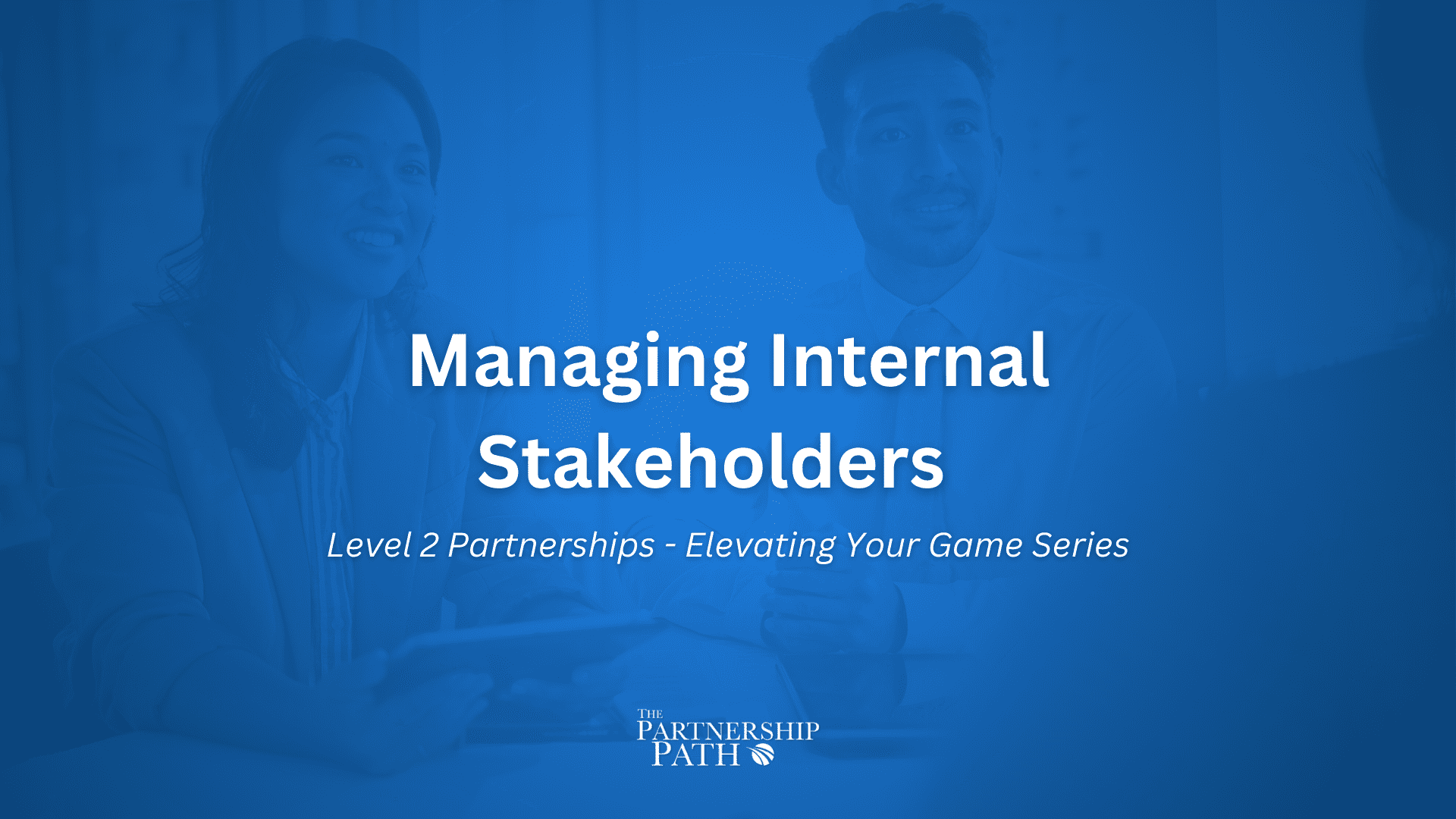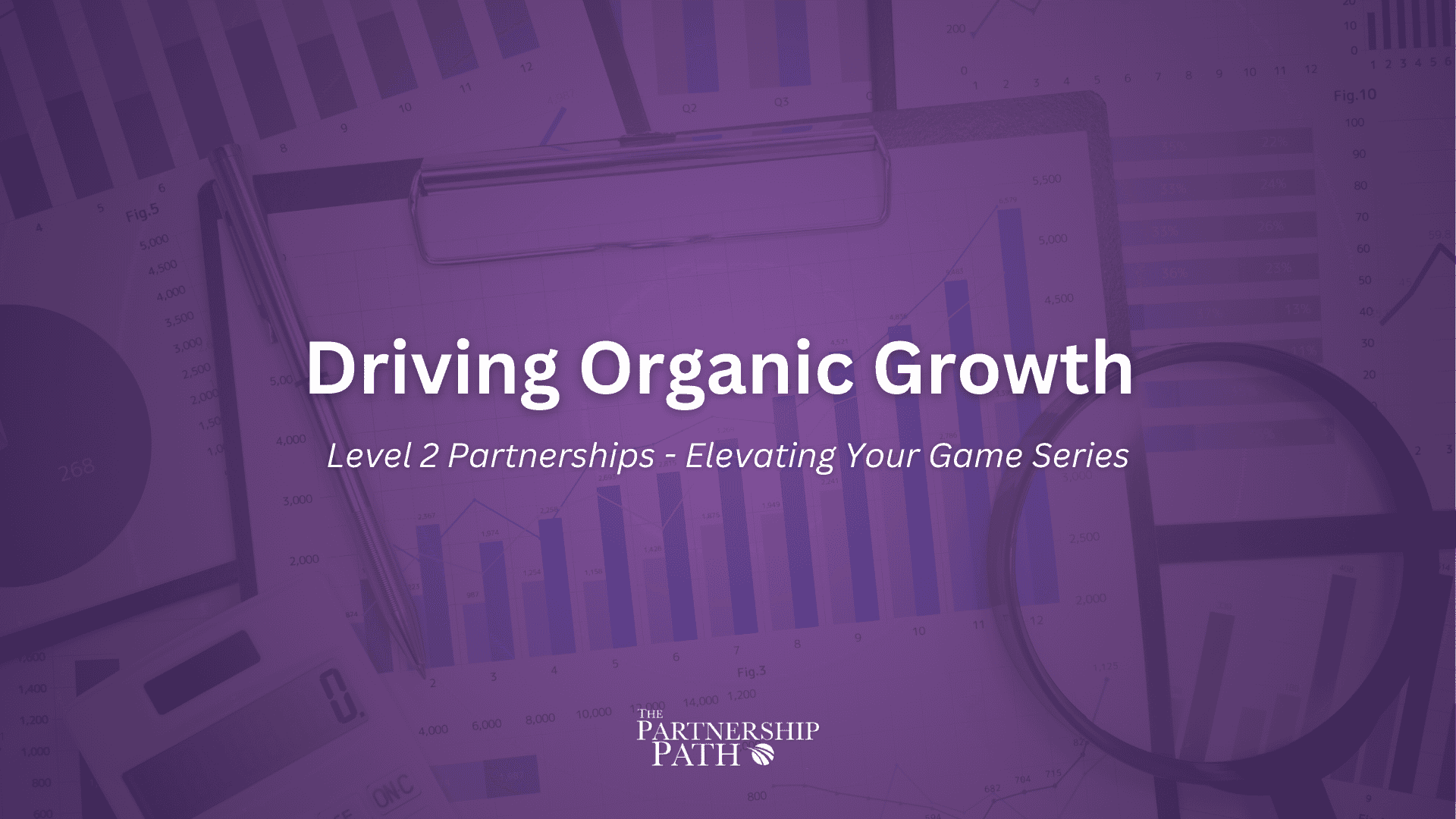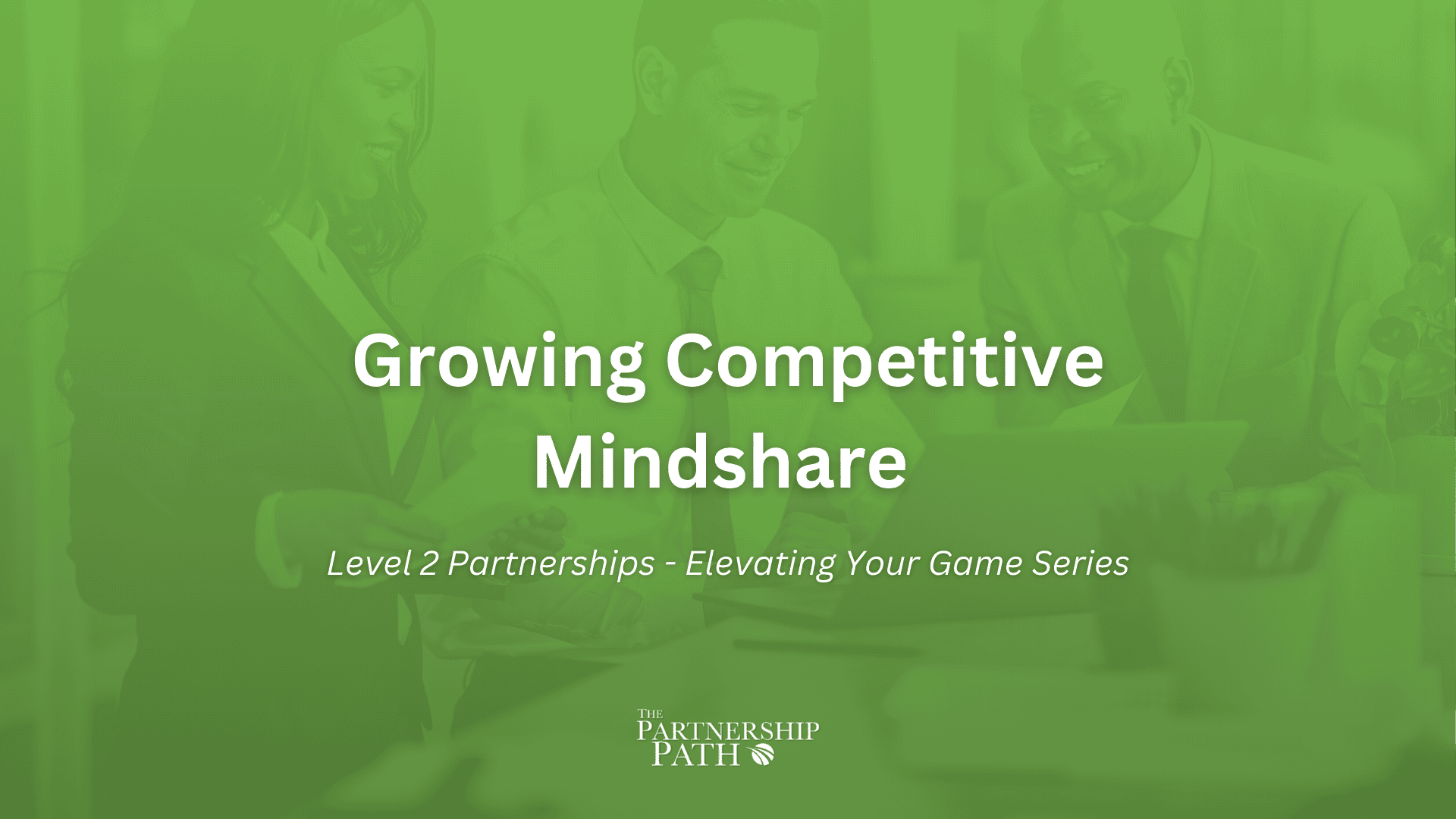Vikki Morris at Splunk on Co-Selling to Seal the Deal
Episode Summary
In this episode of the “Partnership Path” podcast, host John Rudow welcomes Vikki Morris, a seasoned expert in partnering and co-selling with industry giants such as Microsoft, Cisco, and Amazon. Vikki shares her extensive experience in managing strategic partnerships, building channels, and navigating complex partner relationships. The conversation focuses on the importance of early engagement, addressing potential issues, and fostering strong, trusting relationships between partners.
Transcript
John (00:01)
Well, welcome to the Partnership Path in Real Life podcast, Vikki. I am so excited to have you on the show with us today. Gosh, you and I have known each other for so, so long and just really excited to have someone like you on the show because you’ve worked at multiple really big players in the industry. And so you just bring this wealth of experience to the table. I can’t wait to have you share with the community.
your experience. So, but before we get to that, I’m a little unfair because I know you, but the community doesn’t. So, let me give you a chance to introduce yourself. Tell us who you are and a little bit about your background and how long you’ve been working with partners.
Vikki (00:46)
Thank you, John. Amazing. And you know, you’ve talked me up way too much, but I’m very excited to be on the show. I’ve been loving listening to the podcast with you and Tony. And yes, partnering is my passion. I have been doing it for a long time. I’m aging myself now, but I’ve worked with, you know, some of the industry giants, Microsoft, Cisco, Amazon, and working in
partner roles in co -selling with partners and managing strategic relationships with some of the big partners in the industry and building channels. So I won’t share how many years, but just trust me, it’s a long time.
John (01:31)
Well, you don’t need to share. That’s fine. We’ll all figure that out from your experience. But from your accent, the community will realize that you’re from Australia, but that part of your experience was in the US. You came to the US and worked here for a while, but now you’re back in Australia. And so tell me, since I was able to visit you just like six or eight months ago, but.
Kangaroos? What’s the latest kangaroo story?
Vikki (02:04)
well, I was just sharing earlier that I, you know, it’s half past eight in the morning here and about an hour ago I got up to do the mother, like, get out of bed kids routine. And just before the show started, I checked on the kids to see the progress of them getting ready and they’re still in their jammies and staring out the window and there’s kind of like 20 kangaroos in our front yard.
and the kids were naming them. So we had ankles and scruffy and like all these and I was like, we don’t have time for this this morning kids.
John (02:34)
Come on.
my gosh.
I love that, my gosh. All right, so for those of us that don’t live in Australia, like that’s a big deal, 20 kangaroos in your front yard, that’s super cool, really very cool.
Vikki (02:54)
Well, yeah, I mean, I think there’s, you know, the urban myth in the US that there’s kangaroos hopping down the street, which is not quite true for most, but I do live in an area where there are kangaroos in the front yard. So it’s very cool.
John (03:11)
Love that. I love it. All right. Well, we brought you on this episode in particular. Tony and I, as you know, just did an episode on co -selling with partners on how to seal the deal through Co -Sell. And given your background, this is just an ideal episode for you to be on. So let’s just start with, you know, what really struck you in that episode that Tony and I talked about and, you know, what resonated for you or, you know, what kind of really hit you?
when you listen to what Tony and I talked about.
Vikki (03:44)
Yeah, well, firstly, another sort of personal anecdote, you know, you and Tony talked about the analogy of teaching our kids to drive. So again, living rurally, my children are 12 and 14 and they already know how to drive. So I’m so excited about that because…
John (03:56)
Yes.
because they drive around the property and stuff. Nice.
Vikki (04:13)
they drive around the property and they drive manual, manual four wheel drives and not on the streets, just trust me on that, but definitely around the farm. And I feel so excited about that, that I’ve been able to teach them, or we’ve been, Tim and I have been able to teach them early. And so that when they actually do get their license and they’re out on the road, they’ll be focused on not the skill of driving, but the skill of being safe and navigating.
John (04:18)
Nice.
Vikki (04:43)
other vehicles on the road. So it’s pretty cool, but it is a great parallel to partnering in terms of early engagement and teaching, coaching and teaching and engaging early is kind of the key to partnering. So really what struck me in the podcast was talking about
John (04:46)
Yeah.
Yeah.
Vikki (05:11)
teaming and rules of engagement, teaming agreements and rules of engagement. And I have really, really strong philosophies around kind of setting up the partnership for success early, particularly when we do identify an opportunity and we’re figuring out kind of the rules of engagement around that opportunity and how we’re going to team together through the opportunity. And I think,
John (05:39)
Yeah.
Vikki (05:41)
you know, the most important thing for me is really kind of talking about all the possible scenarios that may occur during the engagement and addressing some of the issues that might pop up first and early and discussing how we’re going to kind of manage and how we’re going to navigate things that may go wrong.
John (05:51)
Right.
Yeah.
Vikki (06:09)
Certainly in my experience, things do go wrong often, mostly. In fact, yeah, in fact, you know, pretty much every engagement things go wrong. And dealing with the reps at the companies that I’ve worked for, often the kind of frame of reference is avoiding things, kind of.
John (06:14)
Only every once in a while, yeah.
Yeah. Yeah.
Yeah.
Vikki (06:34)
avoiding conflict and, and, you know, not having that, that situation where things go wrong, but in any relationship, whether it be partnering in the IT industry, a marriage, a relationship with kids, things, things go wrong, things go wrong all the time. So, you know, I really try to come, come to that with an open mind and, and sort of tease out, well, it’s going to go wrong.
John (06:37)
Right.
Right. Yeah. Look, I love, totally, I love that approach, Vikki. It’s so, like, it just resonates so hard with me just because I think that too many people think, I don’t want to bring up what could go wrong because I don’t want people to think I’m negative or I don’t want people to think that, like, everything goes wrong when I’m involved or whatever. And it’s actually really the opposite that,
Vikki (07:04)
So let’s talk about that. Yeah.
John (07:33)
When you’re that transparent, right? When we sit down and say, okay, these are all the things that could go wrong and let’s make sure we know how we’re going to resolve that conflict when it does arrive. Not if, but when. So when two sales reps argue over who’s in charge over this part of the deal, or when we have to demo something in, you know, one party wants their person to demo, but the other party wants their person to demo or whatever it is.
How are we going to resolve those conflicts? It’s so critical to put that on the table early and talk about, OK, so how are we going to deal with this when it happens?
Vikki (08:13)
Yeah, yeah, absolutely. Like just, just sort of covering, you know, the worst case scenario, you know, what if the, you know, what if we’re not happy with the, how the partner is progressing? What if the opportunity stalls? What if, you know, like the worst case scenario, which happens a lot. What if the, the partner introduces our competition or what if we decide we want to ditch the partner and introduce somebody else? How?
They are the really difficult conversations. So let’s talk about them before they happen so that we know and we’re predictable if and when it does happen.
John (08:55)
So Vikki, I’m curious, because you’ve done this so many times. And you’re usually dealing with representing a very large partner, working with another relatively large organization. I mean, usually, I know from your background, the partners you’re working with are other kind of multinational big organizations. In your experience, is your recommendation that people document that then too? Like, should that get written down? Like, hey,
Here’s how we’re gonna deal with it or is it just a conversation?
Vikki (09:29)
I’m a big fan of teaming agreements. I think that they’re really important. It depends on the deal, it depends on the partner, it depends on your relationship. You don’t want to get too kind of documented. Some organizations just document things out the wazoo and that can scare people off. So it depends, but look, I’m a fan. I’m a fan of documenting because…
John (09:46)
Right.
Right. Right.
Vikki (09:58)
conversations can be forgotten. You know, if it was just me and my relationship with a partner, then I could possibly say, no, don’t worry about documenting because I trust the relationship. But when you’ve got in these large, big complex deals, there’s multiple parties, you know, things can get misinterpreted. So look, I’m a huge fan of, you know, doesn’t have to be a six page narrative.
John (10:26)
Right. Right. Right.
Vikki (10:28)
But yes, just some key, you know, some some key rules, rules of engagement teaming agreement where you document some some of the scenarios and you know, milestones, you know, we’ll, we’ll, we’ll do x, y, z by by this timeframe, I think is really good best practice.
John (10:50)
Yeah. Are you, this kind of raises another issue. I think this is a bigger partnership beyond just co -selling, a partnership issue just beyond co -selling, but I think it’s probably most painful in co -selling is escalation. How do we pre -define escalation, right?
Can you talk a little bit about that? Like, you know, this whole idea of if one party or the other is unhappy with the people they’re working with, what’s their remedy? Like, in terms of a co -selling environment, because I’m sure that that happens a fair amount where one sales team feels that the other sales team sort of isn’t delivering. Like, what’s your recommendation there? Like, give the community some ideas on ways to manage
Vikki (11:47)
Yeah, yeah, so interesting. And it’s definitely something that I’ve learned at my time at Amazon. Amazon has an escalate culture, which terrifies people, you know, a lot of the time because it’s like, my gosh, I’m being escalated. However, it’s a really, I’ve learned that in my time there that it’s, it’s a really good practice. And escalate doesn’t, you know, need to be horrible and terrible. And I’m in trouble. And you know, I’m
John (11:59)
Yeah.
Right.
Vikki (12:17)
I’m a poor performer, it’s just jumping on issues early. And similarly to engaging early, escalating early when there’s any issue or a potential issue is incredibly important. And not to…
John (12:36)
Yeah.
Vikki (12:40)
doble on people and get people into trouble, but to surface issues and really being able to resolve them. And in all my years of partnering, the challenging times and the issues, the escalations, the conflict, the bad things that happen, they will happen, but it’s always.
100 % of the time has been an opportunity to strengthen the partnership. Talking about them, resolving the issues, jumping in a room together and really nutting out how we deal with them has always, for me, translated into an opportunity to build the relationship and has turned out better.
John (13:11)
Yeah. Yeah.
Yeah. Yeah. It reminds me of two things. When I was a young sales guy in a direct sales role, I had a manager who would always say bad news early is good news, right? That same concept of being able to get ahead of whatever the negative thing is and be able to address it gives you the opportunity to address it. So knowing about it early is way better. And then the other thing that kind of popped into my mind when you were saying that was there are
Vikki (13:46)
Yeah.
John (14:03)
There’s an organizational philosophy in some organizations about not necessarily purposefully creating conflict, but really kind of allowing conflict to happen so that you can address it. There’s this sort of hurt and rescue kind of organizational philosophy that says, hey, it’s okay to maybe not do…
Vikki (14:19)
Yeah.
John (14:28)
as good of a job on that because it’s going to create a little bit of conflict, which will give us an opportunity to strengthen the relationship through that conflict resolution. Right.
Vikki (14:35)
Yeah. Actually, I love that. Yeah, I love that. And that’s so, it feels so counterintuitive to what people actually want to do because they just want, you know, like, just don’t bring me conflict. I don’t want to deal with it. But it is, it’s a great thing. It’s a really great thing.
John (14:53)
Yeah. All right, Vikki. So I want to give you, I want to give you one more opportunity to kind of share some of your wisdom. We have a fair amount of our community are people that are somewhat new to partnering or maybe new to a particular type of partnering. So maybe they’ve spent a big chunk of their career working with smaller resellers and now they’re trying to work with large ISVs or they’ve been working with ISVs and now they need to work with SIs or whatever.
What’s your kind of best advice in terms of co -selling, that co -selling motion to someone who hasn’t really done it before, who hasn’t really had to kind of figure out how to marry two sales organizations in a healthy way? What’s your advice to that less experienced person? So give us your X number of years experience in a couple of minutes.
Vikki (15:52)
Yeah. So really, it’s, it’s all about trust, you know, building, building trust with that partner is critical, but trust with the partner. I mean, the, the complexity of a, partner account manager, partner development manager, you know, any sort of partner sales role is, is huge. Don’t underestimate how complex it is. I mean, I believe, and you know, a little bit biased because I’ve been doing it for so long, but.
John (16:17)
Yes.
Vikki (16:22)
The role of a PAM is way more complex and way more difficult than the role of a direct Salesforce is. I mean, you’ve got like really a three -way sales motion, if you like. You’ve got to sell to the partner. So you’ve got to earn enough trust and have enough sales skill to sell to the partner to ensure that they want to partner with you.
Then you’ve got to sell to your own sales organization, which is the toughest sale ever because they’ve always got, well, I don’t want to partner with that partner because I partnered with them five years ago and they did this and they did that and whatever. So you’ve got to convince your own, you know, your own sales organization. And then you’ve got to bring those two together to sell to your customer, to the end customer. So it’s really, really complex.
John (16:55)
All right. Yep.
Right. Yeah.
Vikki (17:19)
And you cannot do any of those things unless you operate with integrity and really have trust with all three parties. So definitely operating with integrity and really earning trust. And there’s a few ways to do that in my opinion and in my experience. So really fostering a
John (17:28)
Yeah.
Vikki (17:49)
an environment where we’re speaking about the partnership in really positive tones. So there’s a positive tone and sentiment, even if the partner has done something wrong in the past, the past is the past, where we need to look at the present moment and the opportunity that it presents itself and really harvest value proposition that the partner
John (17:57)
Yeah.
Right. Yeah.
Vikki (18:18)
and our organization are bringing together to deliver to the customer. So ensuring that we really have, you know, that positive tone and sentiment at all costs. Also ensuring that we do have the courage to call out when we’re not happy. So, you know, the partner may not be performing or we may not be performing. So call it, call it early, really call it out.
take the time to understand each other’s business. So, you know, at Amazon, we talk a lot about customer obsession and our customer obsession turns up differently to our partner’s customer obsession or our partner’s customer focus. And it doesn’t mean that that’s wrong, that just because our customer focus is a little bit different, it doesn’t mean that either party is wrong. It just means that it’s a little bit different.
John (18:52)
Yeah.
Right.
Yeah.
Vikki (19:15)
So taking the time to really understand that that is important and not jumping to conclusions that it may be wrong because it’s different to ours is critical. And I think just having patience and empathy with each other, not getting impatient or aggravated about things, but just really respecting each other’s organization and where we’re coming from.
John (19:32)
Yeah.
Vikki (19:45)
and what we’re trying to achieve together and taking the time to massage that into a great outcome for our customer. So there’s Vicky’s, you know, tips.
John (19:55)
Yeah, I love that Vikki. I love it.
This is why I love working with you, right? Because you just nail it, right? So, you know, positive attitude, transparency and honesty, and then patience and knowledge, right? You know, just really trying to understand. Like, that is partnership in a nutshell. Doesn’t matter whether we’re talking about COSEL or anything else, that’s partnership in a nutshell. Love it. Vikki, thank you so, so much for coming on.
this podcast with us. I really appreciate you, Sharon, your wealth of expertise with our community. And I hope you’d be willing to come back again sometime when we have another topic that interests you.
Vikki (20:41)
absolutely, John. And thank you. It’s been a real honor and yeah, love participating and love the podcast. So thanks again.
John (20:52)
Thanks, Vikki. Good to see you.
Vikki (20:55)
See ya.
Key Takeaways
- Early Engagement and Conflict Resolution: Vikki emphasizes the importance of engaging early with partners and addressing potential conflicts before they arise. Anticipating challenges and planning resolutions in advance strengthens the partnership.
- Trust and Integrity are Essential: Building trust with both partners and your own sales organization is crucial. Integrity, open communication, and transparency are key to successful co-selling and partnership management.
- The Power of Positive Tone and Empathy: Maintaining a positive attitude, showing empathy, and understanding each other’s business goals foster long-term, successful collaborations. Being patient and respecting differences in approach are critical for mutual success.



